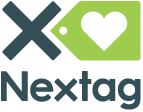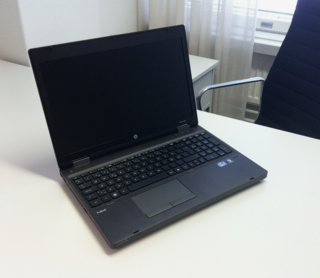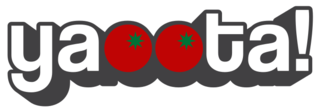Related Research Articles

Shopping is an activity in which a customer browses the available goods or services presented by one or more retailers with the potential intent to purchase a suitable selection of them. A typology of shopper types has been developed by scholars which identifies one group of shoppers as recreational shoppers, that is, those who enjoy shopping and view it as a leisure activity.

In marketing, a product is an object, or system, or service made available for consumer use as of the consumer demand; it is anything that can be offered to a market to satisfy the desire or need of a customer. In retailing, products are often referred to as merchandise, and in manufacturing, products are bought as raw materials and then sold as finished goods. A service is also regarded as a type of product.
Google Shopping, formerly Google Product Search, Google Products and Froogle, is a Google service created by Craig Nevill-Manning which allows users to search for products on online shopping websites and compare prices between different vendors. Google announced at its Marketing Live event in May 2019 that the new Google Shopping will integrate the existing Google Express marketplace into a revamped shopping experience. In the US, Google Shopping is accessible from the web and mobile apps, available on Android and iOS. Google Shopping is also available in France, accessible from the web only. Like its predecessor, Google Shopping is free and requires a personal Google account in order to purchase from the platform. A colored price tag icon replaces the parachute icon from Google Express.

Consumer behaviour is the study of individuals, groups, or organisations and all the activities associated with the purchase, use and disposal of goods and services. Consumer behaviour consists of how the consumer's emotions, attitudes, and preferences affect buying behaviour. Consumer behaviour emerged in the 1940–1950s as a distinct sub-discipline of marketing, but has become an interdisciplinary social science that blends elements from psychology, sociology, social anthropology, anthropology, ethnography, ethnology, marketing, and economics.

Online shopping is a form of electronic commerce which allows consumers to directly buy goods or services from a seller over the Internet using a web browser or a mobile app. Consumers find a product of interest by visiting the website of the retailer directly or by searching among alternative vendors using a shopping search engine, which displays the same product's availability and pricing at different e-retailers. As of 2020, customers can shop online using a range of different computers and devices, including desktop computers, laptops, tablet computers and smartphones.
A product feed or product data feed is a file made up of a list of products and attributes of those products organized so that each product can be displayed, advertised or compared in a unique way. A product feed typically contains a product image, title, product identifier, marketing copy, and product attributes. But, can also contain links to rich media assets such as videos, 3D animations, brochures, product stories, product relations, and reviews, as in the case of Open Icecat, the multilingual open content catalogue.
A comparison shopping website, sometimes called a price comparison website, price analysis tool, comparison shopping agent, shopbot, aggregator or comparison shopping engine, is a vertical search engine that shoppers use to filter and compare products based on price, features, reviews and other criteria. Most comparison shopping sites aggregate product listings from many different retailers but do not directly sell products themselves, instead earning money from affiliate marketing agreements. In the United Kingdom, these services made between £780m and £950m in revenue in 2005. Hence, E-commerce accounted for an 18.2 percent share of total business turnover in the United Kingdom in 2012. Online sales already account for 13% of the total UK economy, and its expected to increase to 15% by 2017. There is a huge contribution of comparison shopping websites in the expansion of the current E-commerce industry.
Bing Shopping is a products search and discovery service that helps save time by bringing products from multiple sellers together on a single website. It uses Bing to show product results–including photos and product details. Products can be filtered and prices compared. Purchases are completed on the seller's website.
Faceted search augments lexical search with a faceted navigation system, allowing users to narrow results by applying filters based on a faceted classification of the items. It is a parametric search technique. A faceted classification system classifies each information element along multiple explicit dimensions, facets, enabling the classifications to be accessed and ordered in multiple ways rather than in a single, pre-determined, taxonomic order.

TheFind.com was a Mountain View-based online discovery shopping search engine targeting lifestyle products such as apparel, accessories, home and garden, fitness, kids and family, and health and beauty. On March 13, 2015, Facebook, Inc. announced that they had acquired TheFind.com for an undisclosed sum, and the site was being shut down.
An online shopping directory is a "Yellow Pages-Style" web directory that specializes in ecommerce sites. Inspired by the organizational structure used in traditional shopping mall directories, online shopping directories organize ecommerce sites by their category and subcategory of goods sold. Without the constraints related to shopping at a physical mall, an online shopping directory serves to aggregate all ecommerce sites in one centralized location in order to help a user decide where to shop online.

Nextag was an independent price comparison service website for products, travel, and education. It started as a website where buyers and sellers could negotiate prices for computers and electronics products. From 2000, the business model focused on comparison shopping. NexTag also owned Hamburg, Germany-based Guenstiger.de. It provided functionality for tracking the historical prices of a product across various sellers.
Editorialist is an e-commerce marketplace that offers styling services with a specialization in luxury fashion and accessories.

The HP ProBook is a line of business-oriented laptop computers made by Hewlett-Packard. HP marketed the ProBook series to business users; the list price was lower than that of HP's higher-end EliteBook series.
Pronto.com is a price comparison service and a division of Barry Diller's company, IAC. Pronto was founded by IAC in 2005 as a downloadable software application that silently monitors all of a user's activity on a product page, then shows deals from other merchants on the same items, or similar ones, until it finds a better deal. In July 2006, Pronto launched the beta of its traditional Comparison shopping engine website which was made official in September 2006. According to Compete.com, a web traffic analysis company, Pronto.com was ranked the 7th fasting moving website for the period of December 2006 to December 2007.
Miva, Inc. is a privately owned ecommerce shopping cart software and hosting company with headquarters in San Diego, California and a data center in Tampa, Florida. Miva Merchant's ecommerce software runs on its proprietary scripting language, MIVA Script.

Zugara is an American corporation headquartered in Los Angeles, California, United States that develops and licenses augmented reality software and creates Natural User Interface experiences for brands.
OpticsPlanet, Inc. is a privately held online retailer of shooting, hunting, military, law enforcement, eyewear, and laboratory equipment. The company is headquartered in Northbrook, Illinois, and operates a number of specialized online destinations, as well as its flagship store OpticsPlanet.com.

Yaoota is an Egyptian search engine for products sold online in Egypt. The engine, which was referred to by Forbes as the “Egyptian Version of Google Shopping”, made headlines in October 2015 upon securing the largest Series A investment in Egypt from UAE-based private equity KBBO Group, only one year post-launch. It was also featured in a separate Forbes ranking as number 2 of the 20 Most Promising Egyptian Startups. The choice of the name Yaoota, which translates roughly to “Crazy Tomatoes”, mirrors the Egyptian culture, which relies on an all too familiar street vendor shout out in street markets that mocks the volatility of tomato and vegetable prices.

Clearly is an online retailer of contact lenses, eyeglasses and sunglasses. The company was acquired by EssilorLuxottica Canada, and is headquartered in Vancouver, British Columbia. They are one of the largest online contact lens retailers in North America, and the largest seller of prescription eyeglasses online in the world.
References
- ↑ Megna, Michelle (2007-03-29). "eBiz News: Capitalize on Next-Generation Search". ECommerce-Guide.com.
- ↑ "Strategies For Multi-Channel Retailing". InternetRetailer.com. 2007-03-22.
- ↑ "Wsale - Taiwan 3C Wholesaler". Wsale.co. Archived from the original on 2020-11-29. Retrieved 2020-10-04.
- ↑ "eBiz News: Capitalize on Next-Generation Search". ECommerce-Guide.com. 2007-03-29.
- ↑ "The 1M/1M Deal Radar 2013: Listar, Miami, Florida". www.sramanamitra.com. Retrieved 22 June 2015.
- ↑ Mitra, Sramana (2007-04-04). "TheFind: LifeStyle Shopping (Part 2)". Sramana Mitra on Strategy.